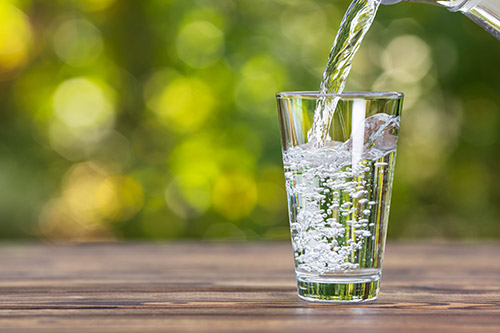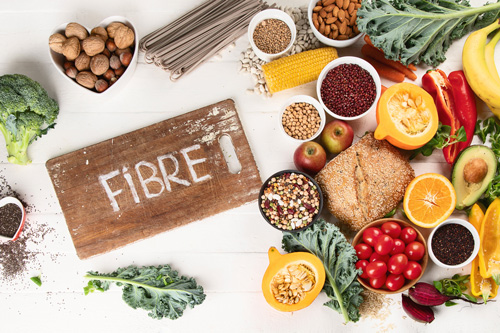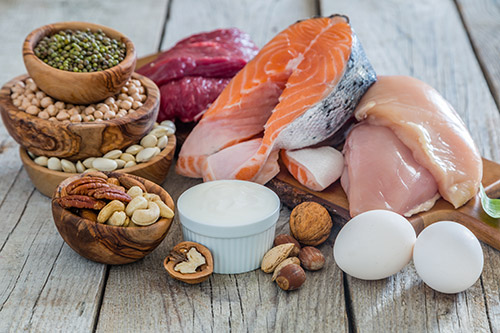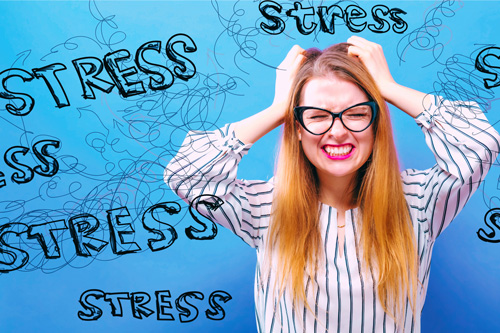Tip 1. Drink more water
Drinking water supports your body’s natural fat burning process, boosts metabolism, and aids digestion. Staying hydrated ensures that your body functions optimally, allowing it to burn calories more efficiently. Water also helps flush out toxins and reduce water retention, which can contribute to a slimmer appearance. Moreover, sometimes thirst is mistaken for hunger, leading to unnecessary snacking. Try to drink 2-3 litres of non-caffeinated fluids a day-your body will thank you for it!

Tip 2. Eat more fibre
High-fibre foods take longer to chew and digest, which means you feel satisfied for longer periods, reducing the urge to snack on unhealthy foods. Fibre also stabilizes blood sugar levels, preventing energy crashes that can lead to overeating. Additionally, a fibre-rich diet supports gut health by promoting the growth of beneficial bacteria, which can aid in nutrient absorption and fat loss. If you are having trouble getting enough fibre into your diet, supplement with a teaspoon of psyllium husks in a large glass of water. It is cheap, tasteless, and if you have it before main meals, it will help you eat less.

Tip 3. Eat more slowly
We are so time poor these days, that we tend to eat as quickly as possible, so we can move on to the next thing. Eating more slowly allows your body time to register fullness, preventing overeating. When you eat quickly, your brain doesn’t have enough time to signal that you’re satisfied, often leading to consuming more calories than needed. Slower eating also enhances digestion, as food is broken down more thoroughly, making it easier for your body to absorb nutrients. Additionally, taking time to savour your meals can increase enjoyment and reduce the likelihood of stress-eating. By eating more mindfully, you can better control portions, improve digestion, and support your weight loss goals. Make eating a pleasurable ritual, by eating at the table with your family, using nice dinnerware and cutlery. I know it sounds silly, but it can make a huge difference!

Tip 4. Focus on protein
If you only take one of these tips on board, then this would be the one. You don’t want the weight you lose to be muscle and that is easy to do if you are trying to eat less. Protein has a high thermic effect, meaning your body burns more calories digesting it compared to fats or carbohydrates. This boosts your metabolism and supports calorie burning throughout the day. Additionally, protein increases satiety, helping you feel fuller for longer and reducing the temptation to snack on unhealthy foods. It also plays a key role in muscle repair and recovery, which is especially important if you’re incorporating exercise into your weight loss routine. Aim for at least 1gm of protein for each kilo you weigh. And remember, meat and dairy are not 100% protein. The table below shows some common foods with associated protein amounts.
Food | Protein (per 100 gms) |
Beef | 27 |
Chicken | 31 |
Eggs | 13 |
Cheese | 25 |
Milk | 3.4 |
Legumes | 5 |
Spinach | 2.9 |

Tip 5. Get some sunshine!
Who would have thought? Vitamin D is linked to fat burning It also has a key role in regulating metabolism and supports bone health by helping your body absorb calcium. It helps regulate blood sugar which improves insulin sensitivity which can reduce fat storage. Additionally, sunlight exposure can boost mood by increasing serotonin levels, reducing emotional eating and improving motivation to stay active. Incorporating sunshine into your daily routine supports vitamin D levels, which can aid in weight loss and overall well-being. In the cooler weather it’s harder to get enough vitamin D from sunshine and even in Australia with the melanoma risk, many people are deficient. Taking a supplement is a good idea to make sure you get enough.

Tip 6. Get more quality sleep
It’s easy to make sleep a low priority, but it is essential during weight loss because it influences hormones that regulate hunger, metabolism, and fat storage. Adequate sleep helps maintain healthy levels of adiponectin, a hormone that increases insulin sensitivity and promotes fat burning. When sleep-deprived, adiponectin levels drop, making it harder for your body to metabolize fat efficiently. Additionally, lack of sleep raises ghrelin (the hunger hormone) and lowers leptin (the fullness hormone), leading to increased appetite and cravings. Sleep deprivation also boosts cortisol, a stress hormone that encourages fat storage, particularly around the abdomen. Try to get at least 7 hours of quality sleep a night. If you have trouble getting to sleep, get some bright light early in the morning and make sure that your bedroom is dark and cool.

Tip 7. Minimise stress
Stress triggers the release of cortisol, a hormone that promotes fat storage, particularly in the tummy area, which none of us want! High cortisol levels can also lead to increased cravings for sugary and fatty foods, making it harder to stick to a healthy diet. Stress disrupts sleep patterns, further impairing metabolism and appetite control. Moreover, chronic stress can decrease motivation for exercise and self-care, hindering weight loss progress. You can reduce stress immediately by belly breathing, that is taking deep breaths as low as you can and slowly breathing out. This signals your parasympathetic nervous system to calm your body down, reducing the circulating cortisol. Another way to beat stress in the longer term is meditation.

Tip 8. Meditate
The benefits of meditation are underestimated and misunderstood by many. It takes practice (like tennis or chess) and you get better at it the more often you do it.)
Meditation can be helpful during weight loss because it promotes mindfulness, helping you become more aware of your eating habits and emotional triggers. By practicing meditation, you can reduce stress, which lowers cortisol levels and prevents stress-related overeating. Meditation also helps you develop a stronger connection between your mind and body, making it easier to recognize true hunger signals and avoid mindless eating. Additionally, regular meditation enhances focus and self-discipline, supporting your commitment to healthy choices and exercise routines. Take just 1% of your day (14.4 minutes) to sit quietly, lock your self in the bathroom if you have to! There are many free apps that can help you learn and talk you through it.

Tip 9. Move more
Moving more is essential during weight loss because it increases calorie expenditure, helping you create a calorie deficit necessary for fat loss. Regular physical activity boosts your metabolism, allowing your body to burn more calories even at rest. Movement also helps preserve muscle mass, which is critical for maintaining a healthy metabolism as you lose weight. Additionally, exercise improves mood, reduces stress, and enhances sleep quality, all of which contribute to better weight management. Incorporating more movement into your daily routine, whether through structured workouts or simple activities like walking, can significantly accelerate your weight loss journey and improve overall health. If you are time poor (and who isn’t) consider googling ‘Dr Zac Bush 4 minute workout’. It uses the 16 largest muscles in your body and causes nitric oxide to course through your bloodstream to provide health benefits for hours. Using 1% of your day (14.4 minutes) you could do this workout 3 times!

Tip 10. Keep busy
Keeping busy is important during weight loss because it helps prevent mindless eating and emotional snacking, which are more common when you are bored or stressed. Staying active, whether through work, hobbies, or physical activities, distracts from unnecessary food cravings and keeps your mind focused on goals rather than temptations. Engaging in productive tasks also boosts your sense of accomplishment, reinforcing your commitment to a healthy lifestyle. Additionally, staying busy often involves physical movement, which burns calories and supports your weight loss efforts. By filling your day with meaningful activities, you can reduce overeating, stay motivated, and make steady progress toward your weight loss goals.

If you can take these 10 tips on board, you are well on the way to feeling and looking better!


